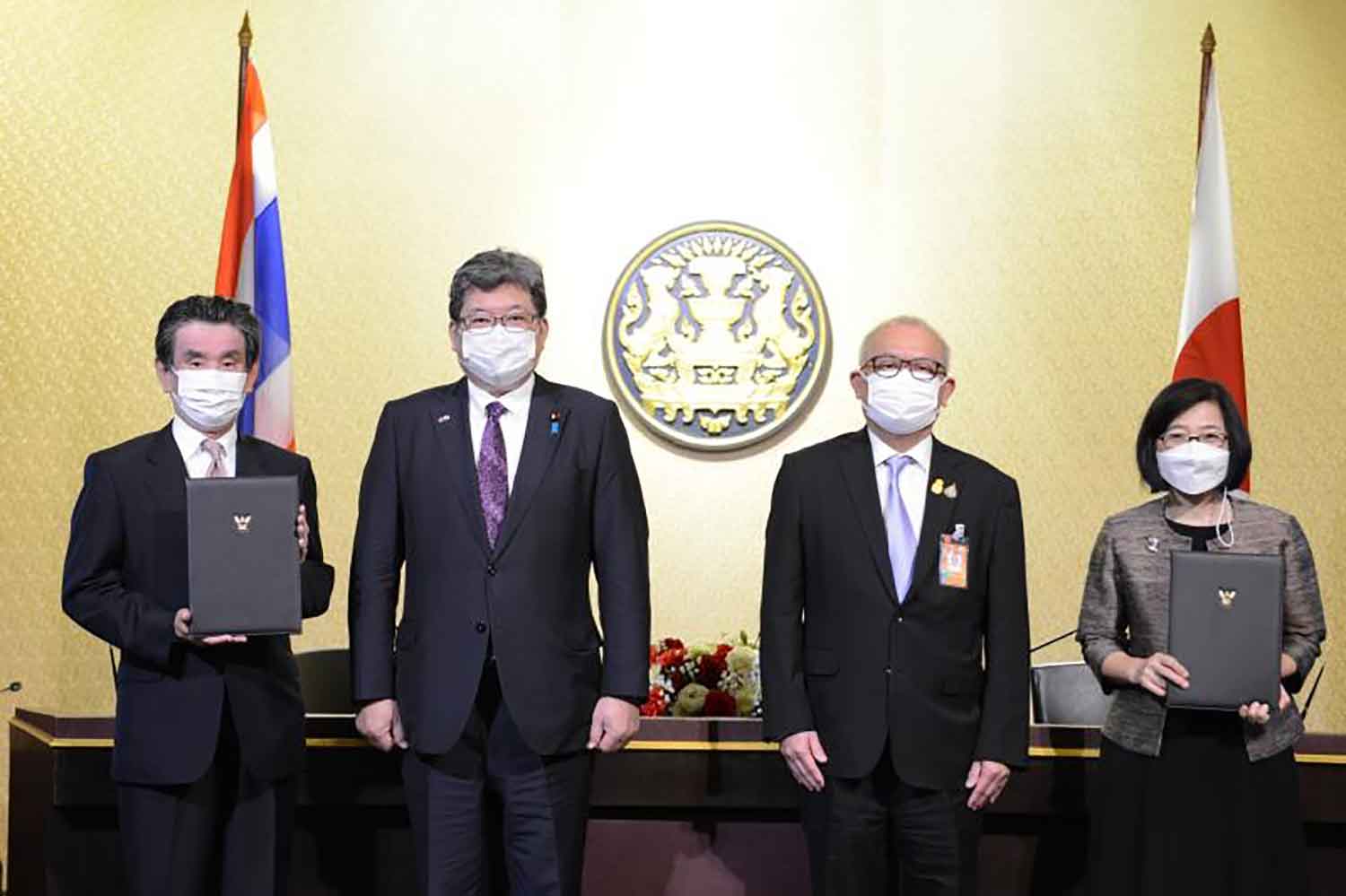
Japan wants to maintain Thailand as its key production base, agreeing on Thursday to move ahead with cooperation plans on green industry and advanced technological development.
Deputy Prime Minister Supattanapong Punmeechaow and Japanese Minister of Economy, Trade and Industry Koichi Hagiuda witnessed two signings of memoranda of cooperation (MoC) on green industry and advanced technological development between Thailand and Japan on Thursday.
One agreement was between the Japan External Trade Organization (Jetro) and the Eastern Economic Corridor (EEC) Office, and the other between Jetro and the Board of Investment (BoI).
Mr Supattanapong said he discussed with Mr Hagiuda a wide range of topics related to the Japan-Thailand economic relationship, including advancing via innovation, strengthening competitiveness and achieving realistic energy transitions.
The two ministers talked about potential cooperation on sustainable development for economic growth by synergising Japan’s green growth strategy and Thailand’s bio-, circular, green (BCG) economic model. Specific topics included next-generation vehicles, smart electronics, robotics, factory automation, logistics, health and medical care, advanced agriculture, biotechnology and food processing.
Mr Supattanapong said Thailand and Japan share similar policies, as Thailand aims to develop BCG, innovation and advanced technology, while Japan has proposed an economic cooperation in Asian countries called the Asia-Japan Investing for the Future Initiative (AJIF).
AJIF was announced in May 2021, focusing on high-value industries, solving socioeconomic challenges associated with economic growth, an energy transition towards carbon neutrality by 2025, and pursuing sustainable global economic growth.
Kanit Sangsubhan, the EEC Office’s secretary-general, said his office signed a memorandum of intent on collaboration with Jetro, focusing on four areas including encouraging Japanese companies operating in Thailand to further investment in the EEC, including in advanced technology and R&D as well as strengthening sector-specific outlays in targeted industries, namely health and well-being, digital, decarbonisation and logistics.
The BoI and Jetro also signed an MoC to further promote investment by Japanese companies in Thailand and develop more resilient supply chains in industrial sectors, including through BCG activities.
“We believe this MoC capitalising on the broad convergence between Japan’s green growth strategy and our BCG agenda will ensure a significant increase in investment by Japanese firms in Thailand’s BCG sectors,” said BoI secretary-general Duangjai Asawachintachit. “Thailand’s ample supply of bio-based raw materials and its strong human resources, research capability, infrastructure and logistics make it the right location for such investments.”